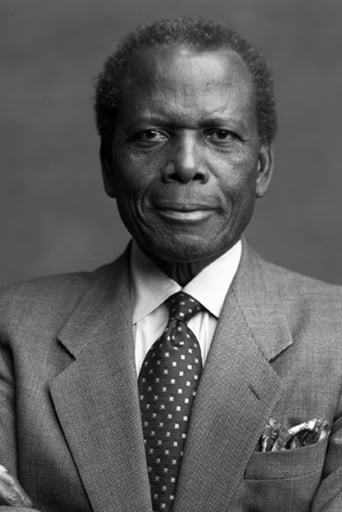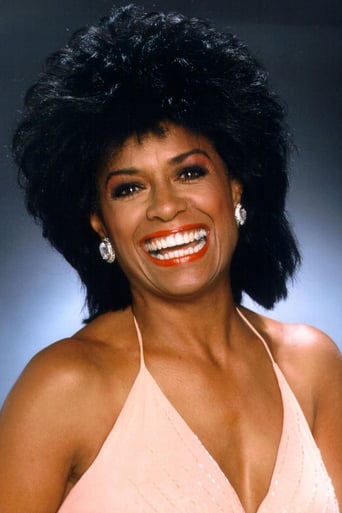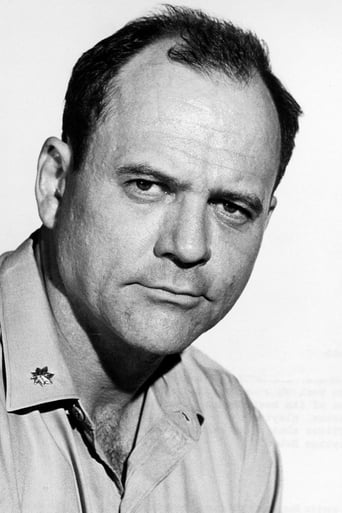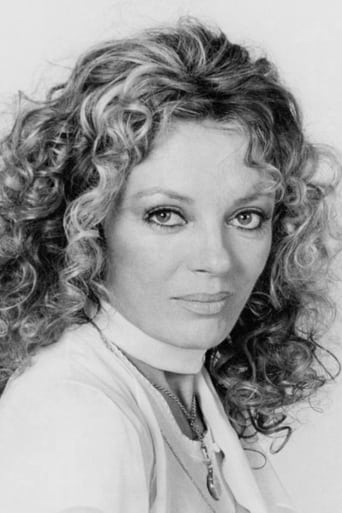GurlyIamBeach
Instant Favorite.
Matialth
Good concept, poorly executed.
Siflutter
It's easily one of the freshest, sharpest and most enjoyable films of this year.
Jakoba
True to its essence, the characters remain on the same line and manage to entertain the viewer, each highlighting their own distinctive qualities or touches.
Wuchak
RELEASED IN 1971-72 and directed by Don Medford, "The Organization" features detective Virgil Tibbs (Sidney Poitier) working in San Francisco where he encounters a noble radical group who want to take down a crime syndicate that deals in heroin. Barbara McNair plays Virgil's wife while Raul Julia & Ron O'Neal play two of the vigilantes. This was the third and final Virgil Tibbs movie, which happened to be the first detective movie series in color to go three films (or so they say). Between the first film, "In the Heat of the Night" (1967), and the second film, "They Call Me Mr. Tibbs" (1970), Tibbs transferred from Philadelphia to San Francisco and now had a family (he was single in the first film). This was perhaps done due to the success of "Bullitt" (1968) and the spectacular locations of San Francisco in general. Speaking of the iconic "Bullitt," "The Organization" is similar in tone, but more melodramatic, like "Dirty Harry," which was released around the same time. While "The Organization" is the least of the three, it's not far off and has its own points of interest. There's an over-the-top funky score by Gil Melle, which certainly dates the movie, but it was avant-garde at the time ("hip" and "happening"). The scores to those other movies are dated too, of course, but they're not as overdone. Personally, I appreciate the music. Sheree North was 38 during shooting and plays a past-her-prime alcoholic babe, but she was still very jaw-dropping. If you've seen "In the Heat of the Night," it's interesting to see Tibbs in his own stomping grounds, i.e. the multiculturalism of the big city, as opposed to be an understandably angry stranger in a small town of the still-prejudiced Deep South. As a snapshot of Big City, USA, 1970 (when it was filmed) "The Organization" is priceless. The climax is clumsily abrupt and ambiguous, yet it illustrates that Tibbs won the battle, but lost the war. THE FILM RUNS 106 minutes and was shot in San Francisco. WRITER: James R. Webb. GRADE: B/B- (6.5/10)
mike dewey
Sydney reprises his Mr. Tibbs moniker in a nicely paced crime drama that has some well orchestrated action sequences, especially the one at the onset of the film. Those first 10 minutes or so reminded me of the heist scene in "Rififi" (1955), in that this scene too was captured with no dialog, letting the viewer see for himself how the action plan was set into motion.Some reviewers "dissed" the 70's sound track and street jargon, but what do you expect? It's a period piece, a 70's action film and by definition will employ those contemporary motifs. To me, it's both refreshing and amusing to be thrust back into the cultural modes of yesteryear.The plot line may have had some small weaknesses to it and some of the actors were no Academy Award nominee hopefuls, but the thrust of the film keeps you attentive and anticipatory. Also, it was nice to see Raul Julia, Demond Wilson and Ron O'Neal in one of their earlier films. Sydney, as usual, shines in his rendition of the Tibbs detective. But the plot twists toward the end where Mr. Tibbs puts the pieces together and gets ready to see justice served... Well, see for yourself in this brutally realistic conclusion.
proffate
Sidney Poitier reprises his Virgil Tibbs role from In the Heat of the Night as a San Francisco police officer who forms an uneasy alliance with a group of well-meaning vigilantes who stole 40 lbs of heroin from the syndicate's import headquarters.It's hard to find anything specific that's wrong with the film, except that if you're going to have a car chase in SF, it should be more than a minute long.Maybe it's just the annoying 70s music....
The_Movie_Cat
Perhaps the least-known Poitier work, certainly of the period; at date of writing only nine IMDb members had voted on this film. This is just over 1% of the votes attained by it's initial prequel, the superb "In The Heat of the Night". Between the two is the awful-yet-lovable "They Call Me MISTER Tibbs!" which took the Virgil Tibbs franchise on a downward slope.Those that do get to see this movie on it's rare t.v. rescreenings and decide to give it a go after the disappointing "Tibbs" will be justly rewarded. Essentially, the production team is the same as the previous film, though Gil Melle provides a jazz-orientated score instead of Quincy Jone's adequate but inappropriate themes. The domesticity is also played down, with Alan R.Trustman absent as co-writer and James R. Webb taking full control of the screenplay. Most importantly, though, is Don Medford as the well above average director. Apart from a rather crude edit where a car accident occurs in the second half of the picture, the scenes are melded together seamlessly and flow together exceptionally well.Poitier reprises the role of Tibbs, an arrogant, aloof, bad-tempered, authoritarian, bigoted Lieutenant. As a result, this is probably the most appealing of all Sidney's characters, and he slips back into the role effortlessly. With no star names to support him, such as Rod Steiger or Martin Landau (though Raul Julia did become a star later in life), Sidney stands way above his peers. His ability to project a bad atmosphere every time he walks into a room is flawless. This time he is not let down by the plot, either, which sees Tibbs caught between the Police Department and a vigilante gang that seeks to expose a wide net of heroin dealers. The plot takes on many shifts in loyalty and focus, keeping the attention, while a chase through underground tunnels lends the requisite chase an extra air of tension. The racial motif is again absent, though a rival black cop played by Bernie Hamilton gives off a frisson of resentment.While predictably not of the calibre of "In Heat of the Night", The Organization stands as the greatest of Sidney's seventies vehicles.Post-Script, March 2016: Over 16 years since I wrote this review (where does the time go?) I realise that I was too soft on what is quite a shaky film. Continuity and editing are not great, and the tone is frequently dirge-like. It's OKAY, but the concluding line that it's the best of Sidney's 70s movies was clearly written by a man who hadn't then seen The Wilby Conspiracy or Brother John. It's what's known as a "take a chance" point of view, and in this case it was wide of the mark.






